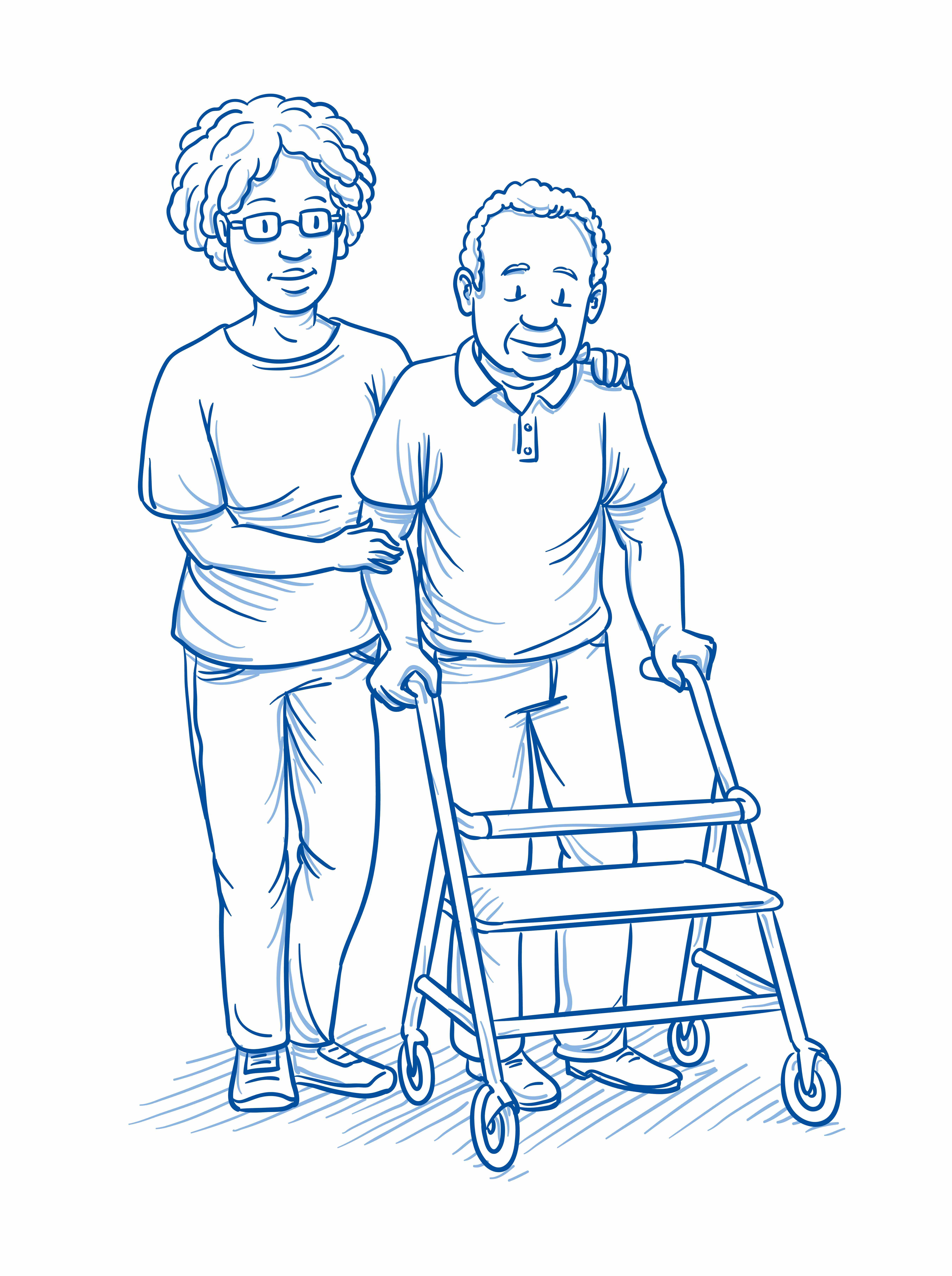How Can I Find Someone To Help Care For My Family Member At Home? - Family Caregiver Alliance

Many older or disabled adults live at home but need daily assistance with a broad range of activities such as bathing, dressing, eating and taking their medications. They may also need assistance with household chores, such as cooking, cleaning and laundry. As a friend or relative, you may find it difficult to provide all of that help on your own. If you are providing care on a daily, weekly or even monthly basis, you may find that you need help or need a break. A variety of services are available to assist you and your family member.
Generally, two types of care in the home are available: home health care services and in-home care services. If your family member requires regular assistance with health care needs, home health care organizations and skilled nursing agencies may be the best choice for you. They can provide a range of medical services, such as medication assistance, nursing services, physical therapy and medical social services to coordinate care among health care providers. Medicare, Medicaid and a number of private insurance policies pay for some home health care services, with certain restrictions. For example, Medicare will cover limited home health care for homebound beneficiaries who need intermittent skilled nursing or therapy services as prescribed by a physician. Many families, however, have to pay out of pocket for home health care services.
If your family member needs help with daily activities and personal care, such as household chores, meal preparation or bathing, or is just in need of companionship, you likely are seeking in-home care services , rather than home health care. In-home care services offer assistance with everyday activities. The costs for these services and the eligibility requirements vary. Often, you will have to hire someone from an agency or someone you know and pay out of pocket. In some communities volunteer organizations may be able to help. While Medicare will not pay for these services, Medicaid (government health insurance for low-income people – this program may go by a different name in your state) covers limited in-home care or chore services for those who qualify. If your family member is age 60 or older, he/she may also be eligible for other government programs administered through the local department on aging such as transportation services, meals programs (i.e., Meals on Wheels) and limited in-home personal care and chore services.
For information on options for care in the home, read FCA’s fact sheet, Caregiving at Home: A Guide to Community Resources, and contact the following agencies:
Eldercare Locator
Connects older Americans (60+) and their caregivers with the local Area Agency on Aging, which provides information about local aging services, and community-based organizations.
eldercare.acl.gov
Medicare Home Health Compare
An online tool that provides detailed information about Medicare-certified home health agencies across the country.
www.medicare.gov/homehealthcompare/search.html
National Association for Home Care (NAHC)
Provides an online resource to help consumers find home care providers in their state and local area.
www.nahc.org
Visiting Nurses Associations of America (VNAA)
VNAs offer comprehensive home health care or personal care to individuals in their respective communities. This site lists VNAs near you:
www.vnaa.org


